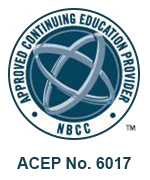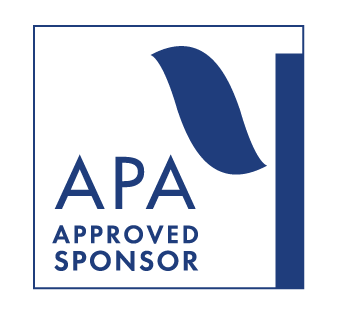Weekend Conference April 12-14, 2024 will be offered Online or ONSITE in Rockville, Maryland, United States. Open to any mental health professional or mental health professional-in-training.
Program Date(s):
April 12, 2024 - April 14, 2024Overview
IPI is delighted to welcome Dr. Howard Levine as speaker for the April 2024 weekend conference. During this conference Dr. Levine will focus on the psychoanalytic treatment of the so called “non-neurotic patient” and the implications such patients bring to bear on both psychoanalytic theory and practice. He will review Freud’s theory on the repressed unconscious, contrasting it with what he has called the “unstructured unconscious”. While the former reflects a reservoir of ideationally represented experience which has been repressed and requires analytic interpretation to be uncovered, the latter reflects the forces of non-ideationally represented psychic forces (drives, not yet transformed perceptions, etc.). Dr. Levine has proposed that the analyst’s use of interpretive constructions with these patients facilitates the development of a representational narrative around which they can begin to organize their experience, perhaps for the first time. The concept of the “unstructured unconscious” is not intended to replace Freud’s notion of the repressed, but rather to complement it, providing a framework in which to work with these patients.
Over the course of the weekend, Dr. Levine will review the development in Freud’s thinking from his “topographical theory” to the “structural theory”, as well as the implications that this shift had on the notion of the repressed. Building upon Andre Green’s work on symbolization with so called “limit cases”, as well as Bion’s concepts of “alpha-function”, the analyst’s intuition, and the analyst’s reverie, Dr. Levine will illustrate how working with the “unstructured unconscious” of the non-neurotic patient differs from working with the repressed unconscious in a classical analysis and the significant challenges such patients present. We look forward to having you join us for this exciting discussion.
Dr. Levine will present the following papers throughout the weekend:
- Freud and Metapsychology, as Seen from the Perspective of The Ego and the Id
- The Analyst’s Absence and Symbolization (based on André Green’s 1975 paper ‘The Analyst, Symbolization and Absence in the Analytic Setting”)
- Unrepresented States and Psychic Regulation
- Interpretation in a Contemporary Context
The course will use lecture, large group discussion, small group/GAM group discussion, case presentation and discussion and informal discussion to achieve the course objectives.
Weekend Start and End times*
Friday 9:20am – 5:30pm US ET
Saturday 9:20am – 6:45pm US ET
Sunday 8:15am – 12:30pm US ET
*Due to the Hybrid nature of this event, times are subject to change. However, detailed schedules, reading lists, and educational objectives will be provided to registered participants prior to the start of the conference.
Howard B. Levine, MD
 Howard B. Levine, is a member of APSA, PINE, the Contemporary Freudian Society and Pulsion, on the faculty of NYU Post-Doc’s Contemporary Freudian Track, on the Editorial Board of the IJP and Psychoanalytic Inquiry, editor-in-chief of the Routledge Wilfred Bion Studies Book Series and in private practice in Brookline, Massachusetts. He is the author of Transformations de l’Irreprésentable (Ithaque 2019) and Affect, Representation and Language: Between the Silence and the Cry (Routledge 2022) and editor of The Post-Bionian Field Theory of Antonino Ferro (Routledge 2022) and The Freudian Matrix of Andre Green. Towards A Psychoanalysis For The 21st Century by André Green (Routledge/IPA 2023). His co-edited books include Unrepresented States and the Construction of Meaning (Karnac 2013); On Freud’s Screen Memories (Karnac 2014); The Wilfred Bion Tradition (Karnac 2016); Bion in Brazil. (Karnac 2017); Andre Green Revisited: Representation and the Work of the Negative (Karnac 2018); Covidian Life (2021 Phoenix); Psychoanalysis of the Psychoanalytic Frame Revisited: A New Look at Bleger’s Classical Work (Routledge/IPA, 2022); and Autistic Phenomena and Unrepresented States: Explorations in the Emergence of Self (Phoenix 2023).
Howard B. Levine, is a member of APSA, PINE, the Contemporary Freudian Society and Pulsion, on the faculty of NYU Post-Doc’s Contemporary Freudian Track, on the Editorial Board of the IJP and Psychoanalytic Inquiry, editor-in-chief of the Routledge Wilfred Bion Studies Book Series and in private practice in Brookline, Massachusetts. He is the author of Transformations de l’Irreprésentable (Ithaque 2019) and Affect, Representation and Language: Between the Silence and the Cry (Routledge 2022) and editor of The Post-Bionian Field Theory of Antonino Ferro (Routledge 2022) and The Freudian Matrix of Andre Green. Towards A Psychoanalysis For The 21st Century by André Green (Routledge/IPA 2023). His co-edited books include Unrepresented States and the Construction of Meaning (Karnac 2013); On Freud’s Screen Memories (Karnac 2014); The Wilfred Bion Tradition (Karnac 2016); Bion in Brazil. (Karnac 2017); Andre Green Revisited: Representation and the Work of the Negative (Karnac 2018); Covidian Life (2021 Phoenix); Psychoanalysis of the Psychoanalytic Frame Revisited: A New Look at Bleger’s Classical Work (Routledge/IPA, 2022); and Autistic Phenomena and Unrepresented States: Explorations in the Emergence of Self (Phoenix 2023).
Tuition and Fees
Registration options:
- Full Conference (Online or Onsite)
- $475 up to 21 days in advance; $525 thereafter
- *Full members: $359
- *Associate members: $410
- Full time students: $175
- Saturday All Day (Online or Onsite): $175
- Saturday Morning only (Online or Onsite): $100
*Login to the website with your member information to access your discounted registration rate
Continuing Education Credit Hours
Full Weekend Conference:
- 14.5 CE credits
Saturday All Day:
- 6 CE credits
Saturday Morning only:
- 2.5 CE credits
Full weekend Conference Schedule
14.5 CE credits - $525
Saturday All Day Conference Schedule
6 CE credits - $175
Saturday Morning Only Conference Schedule
2.5 CE credits - $100
Educational Objectives
Friday Morning
Freud and Metapsychology, as seen from the Perspective of The Ego and the Id
Participants will be able to:
- List three factors that influenced Freud’s shift from his Topographic Theory to his Structural Theory.
- Using Levine’s understanding of how Freud, and later Green, understood the characteristics of the id and drives, describe two ways Levine evolved his thinking about the character structure of non-neurotic patients.
GAM Group
Participants will be able to:
- Within the affective small group discussion, explain two reasons why ego functions are important for conceptualizing and working with non-neurotic patients.
- Describe one way in which two concepts from The Ego and the Id paper were illustrated within the small group’s dynamics.
Friday Afternoon
On André Green’s 1975 paper “The Analyst, Symbolization and Absence in the Analytic Setting”
Participants will be able to:
- Describe 3 characteristics of what Green refers to as “limit cases”.
- List at least two ways in which Green’s theory of the transformational process influences the therapeutic approach with patients whose psychic capacities are impaired.
GAM Group
Participants will be able to:
- Describe two ways that the small group experience develops the participants’ understanding of the importance of internal and external linkage in clinical work.
- Identify one instance in which the creation of a playful potential space in your small group experience enabled a deeper understanding of the concepts re: symbolization.
Saturday Morning
Unrepresented States and Psychic Regulation
Participants will be able to:
- Identify three characteristics of Freud’s classical analytic approach, and briefly explain two ways these characteristics may not be effective with patients who have suffered from early traumatic experiences.
- Describe the difference between the dynamic unconscious and unstructured unconscious.
GAM Group
Participants will be able to:
- Based on your small group experience, give one example of how the Group Affective Model responds to the challenges of learning a new theory.
- Explain two ways that the affective group experience helped you to understand that experiencing fluctuations in a neurotic capacity to represent is a universal tendency.
- Describe one way in which the small affective group experience increased your understanding of how to implement the clinical shifts that Levine is suggesting.
Saturday Afternoon
Case Discussion
Participants will be able to:
- Discuss two ways that the case presentation, and the subsequent discussion by Dr. Levine, expanded your comprehension of appropriate therapeutic interventions with non-neurotic patients.
- Based on the case discussion, explain one major point made by Howard Levine regarding how clinicians can use who they are in order to best relate to their patients.
GAM Group
Participants will be able to:
- Describe one way in which you were able to connect Levine’s theory more easily with your clinical practice, as a result of your small affective group discussion.
- Explain two ways that the small affective group discussion expanded your understanding about the unconscious themes of the clinical case presented.
Plenary
Participants will be able to:
- Describe one example of how symbolization was used in the plenary discussion.
- Identify one instance of how the concept of the container-contained was applied during the plenary discussion.
Sunday Morning
Interpretation in a Changing Landscape
Participants will be able to:
- Using one example, explain why interpretations that are often helpful with a neurotic patient may not help patients impacted by unrepresented states.
- Provide two rationales that support Bion’s view that “being at-one with” the patient’s disturbance is the main therapeutic agent.
GAM Group
Participants will be able to:
- Using the discussion of the affective small group, discuss two ways in which an interpretation can function as a “catalyst and a vector”
- Describe how the small group aided your understanding of interpretation as a process, rather than one of content.
Closing Dialogue
Participants will be able to:
- Identify two central themes in Levine’s presentations as they relate to your clinical practice.
- Describe one example of how the closing dialogue expanded your understanding of how you might engage in the process of transformation.
Onsite Attendance
For those planning on attending this conference onsite:
Hilton Washington DC/Rockville Hotel & Executive Meeting Ctr 1750 Rockville Pike Rockville, Maryland 20852-1699 USA
Membership Benefits
Become a member of IPI at any level and you will have the option of adding on a Zoom Pro account as one of your member benefits. Associate and Full Members also receive discounted registration fees for most of IPI’s events, a subscription to PEP Web, the online psychoanalytic library, and other benefits depending on membership level.
HIPAA compliant Zoom video accounts are an optional add on for all IPI memberships. IPI has a HIPAA Business Associate Agreement with Zoom, which provides a HIPAA compliant platform for our accounts. HIPPA compliance is strongly recommended for all internet-mediated clinical work and clinical teaching. The “+ Zoom Pro” add-on to the IPI membership gives the user the ability to host online meetings with multiple people at the same time. [Current members can upgrade to the “+ Zoom Pro” account and only pay the difference in price from your current membership level.]
Click for IPI Membership and Zoom Account information
Continuing Education Information
The International Psychotherapy Institute, IPI, is approved by The American Psychological Association to sponsor continuing education for psychologists. IPI maintains responsibility for the program and its content. The International Psychotherapy Institute has been approved by NBCC as an Approved Continuing Education Provider, ACEP No. 6017. Programs that do not qualify for NBCC credit are clearly identified. The International Psychotherapy Institute is responsible for all aspects of the programs. The International Psychotherapy Institute is authorized by the Board of Social Work Examiners in Maryland to sponsor social work continuing education learning activities and maintains full responsibility for this program. This training qualifies for Category I continuing education units. The International Psychotherapy Institute is recognized by the New York State Education Department’s State Board for Social Work as an approved provider of continuing education for licensed social workers #SW-0299.
Participants are responsible for verifying that IPI CE credit is accepted by the licensing boards in their own states.


Should you have any questions about the program or the application process, please feel free to contact:
IPI administration team - contactus@theipi.org


